COVID-19 Out: Securing Nigeria’s Borders
Summary
- U.S. CDC and Nigeria worked together during the pandemic to slow the virus that causes COVID-19 from coming into the country as travelers arrive and leave ports of entry.
- Port Health services officers received training on screening visitors and Nigerians for COVID-19 and giving information on what to do if infected. Cargo ship crew members regularly received screenings for COVID-19 when bringing goods from out of the country.
- CDC and Nigeria’s work to screen people for COVID-19 and collaboration with partners to offer vaccination clinics at ports builds relationships with Nigeria’s population.
- As a result, Nigeria will be better prepared for the next public health emergency.
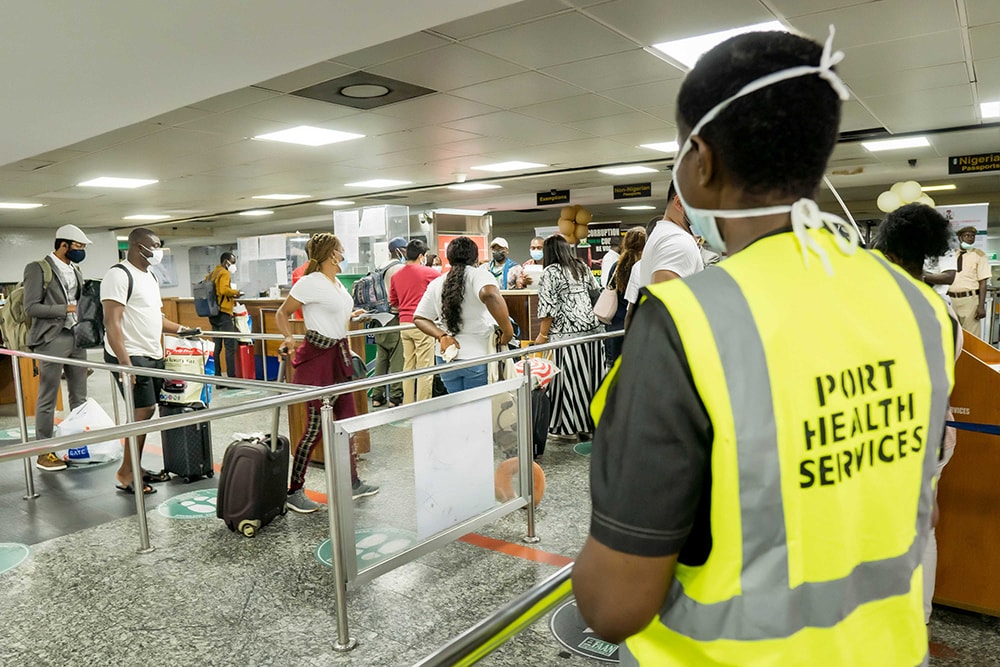
In early 2020, Nigeria’s first official case of COVID-19 was announced. Investigators determined the patient had travelled to Nigeria from Europe. Country leaders acted quickly to strengthen COVID-19 border health surveillance across international borders and within the country.
Photo Credit: Godwin Oisi/CDC
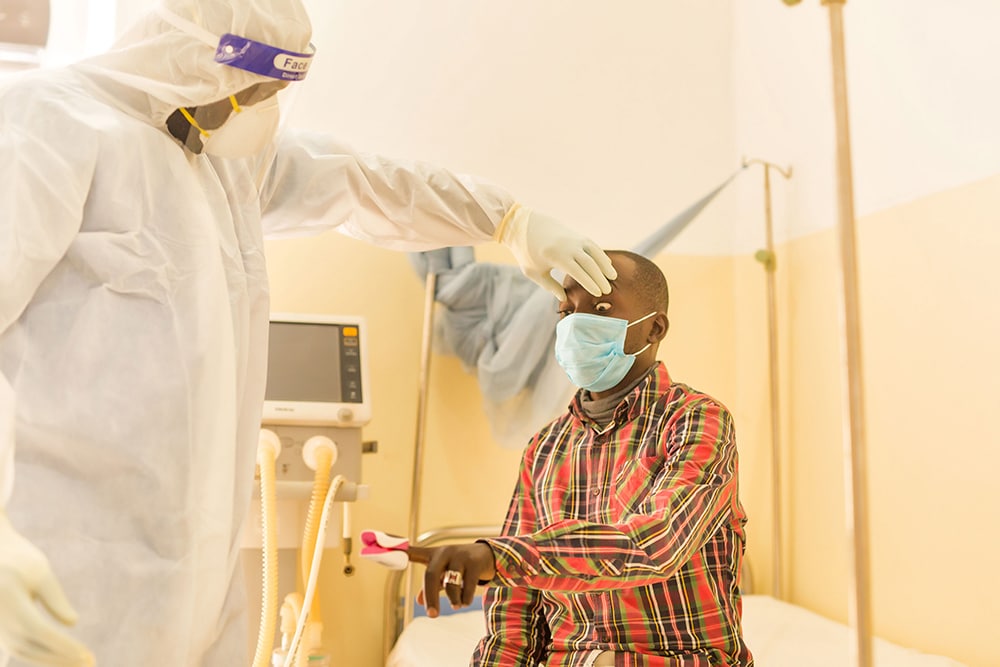
In early 2020, Nigeria’s first official case of COVID-19 was announced. Investigators determined the patient had travelled to Nigeria from Europe. Country leaders acted quickly to strengthen COVID-19 border health surveillance across international borders and within the country.
Photo Credit: Godwin Oisi/CDC
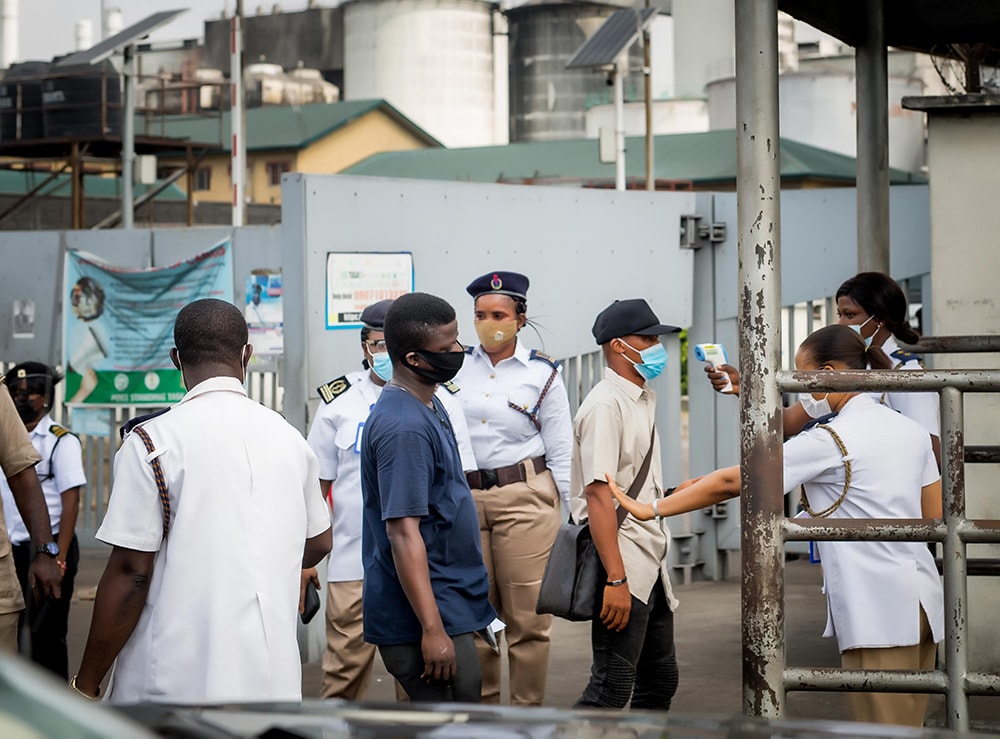
CDC collaborated with Nigeria’s Federal Ministry of Health office of Port Health Services to train officers at land, air, and seaports to test for and report COVID-19.
Photo credit: Godwin Oisi/CDC
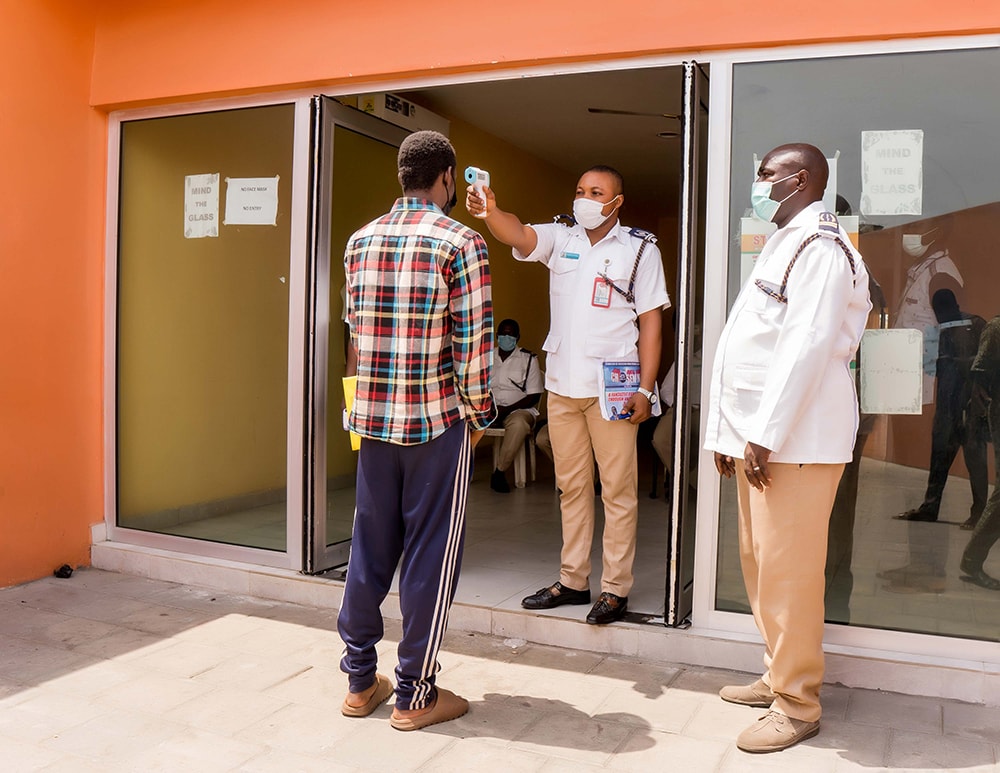
A Nigerian Port Health officer conducts a temperature check for a passenger crossing a land border. This type of screening was the most common at points of entry or exit. People with high temperatures were tested using a COVID-19 rapid diagnostic test. If positive, a confirmatory polymerase chain reaction (PCR) test was conducted.
Photo credit: Godwin Oisi/CDC
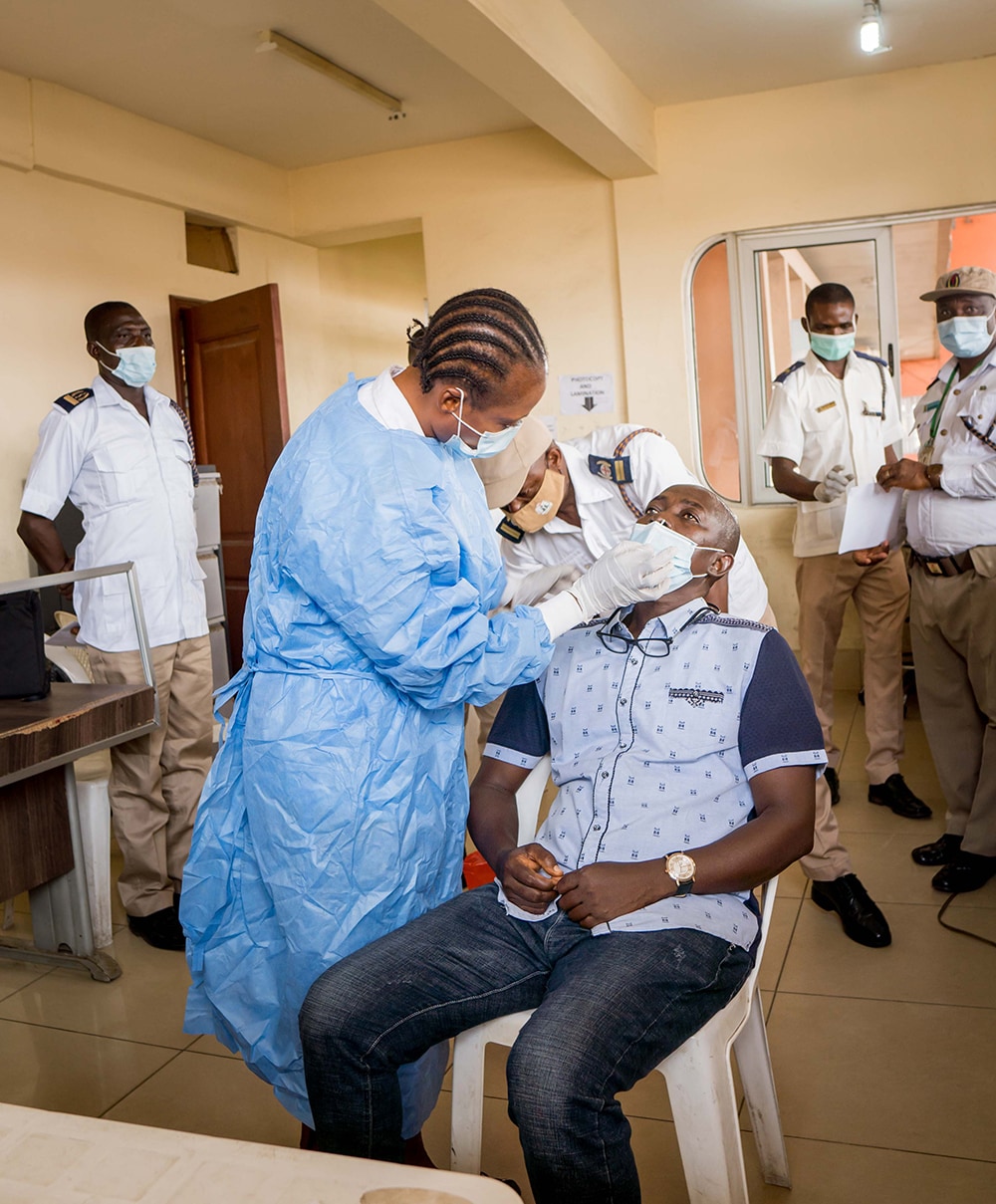
CDC provided rapid diagnostic kits to enhance COVID-19 case finding at the border. People leaving Nigeria and arriving in the country received temperature screenings, rapid testing if they had a high temperature, and PCR testing to confirm positive rapid tests. Anyone who tested positive was quarantined. Port Health officers then used CDC-donated laptops and other information communication technology (ICT) to facilitate real-time reporting of cases.
Photo credit: Godwin Oisi/CDC
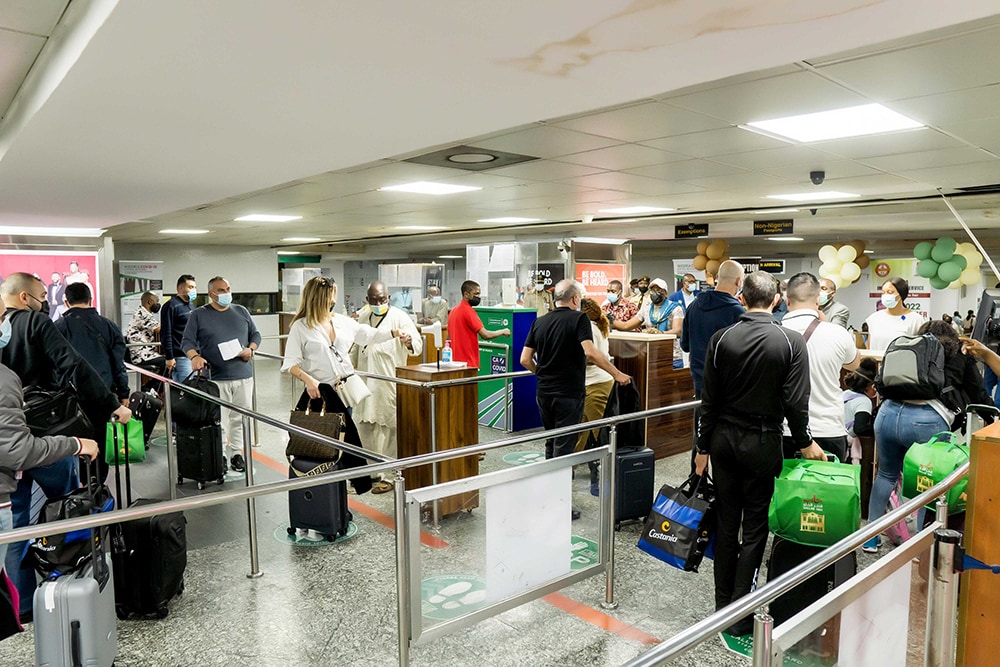
It was important to share quickly the results of the rapid COVID-19 tests from travellers who had a fever or showed other symptoms. Port health care workers sent test results to health departments using laptops and special surveillance software.
Photo credit: Godwin Oisi/CDC
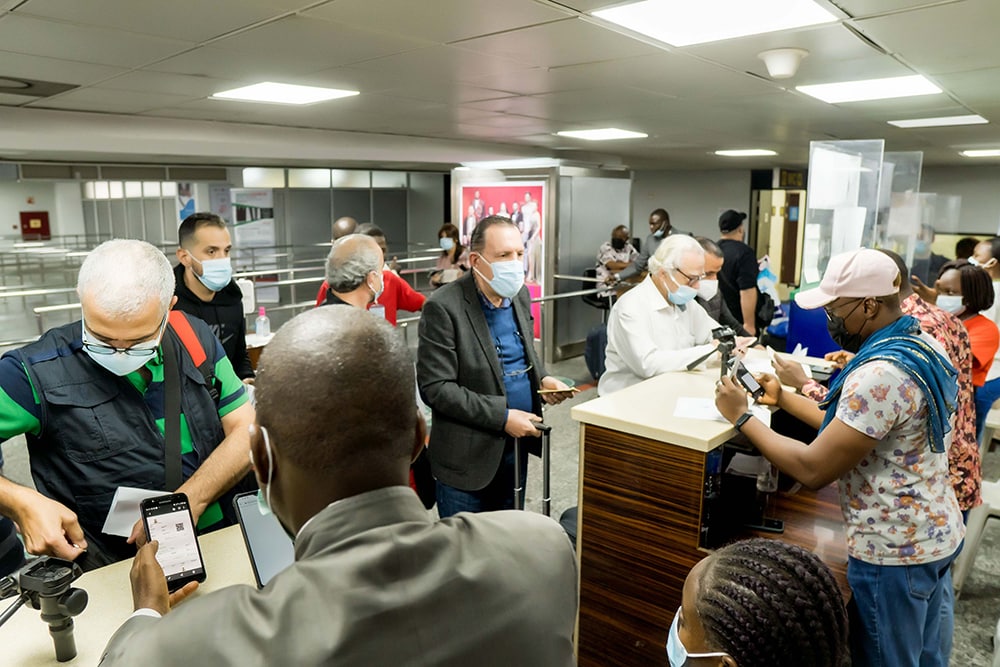
Port Health officers also tested passengers departing Nigeria and used a QR code scanner to review vaccination cards.
Photo credit: Godwin Oisi/CDC
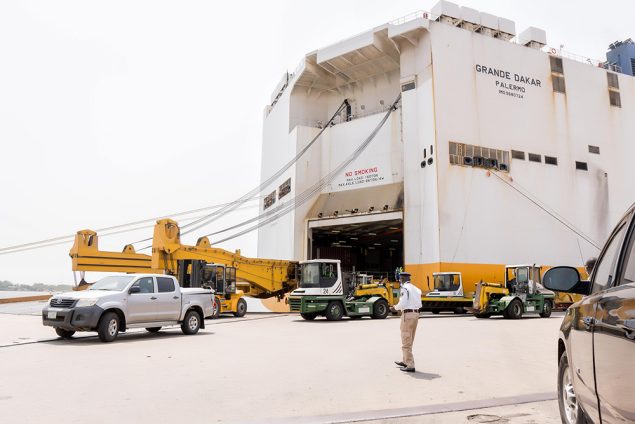
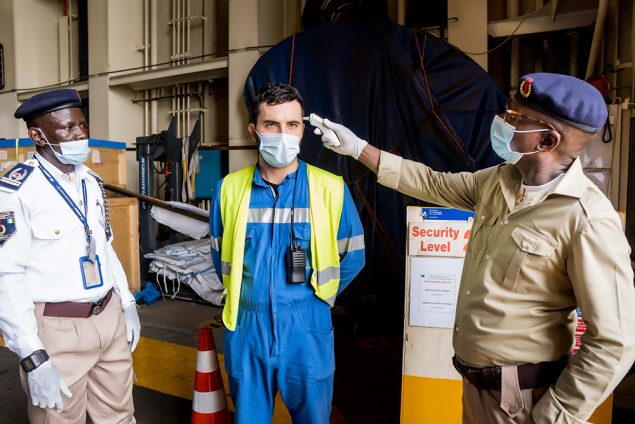
Nigeria’s waterways move high volumes of goods and items via ships and cargo vessels. CDC’s implementing partners trained Port Health officers stationed at seaports to screen crew members and passengers aboard vessels docked at Nigerian ports such as Tin Can Island Port in Lagos.
Photo credit: Godwin Oisi/CDC
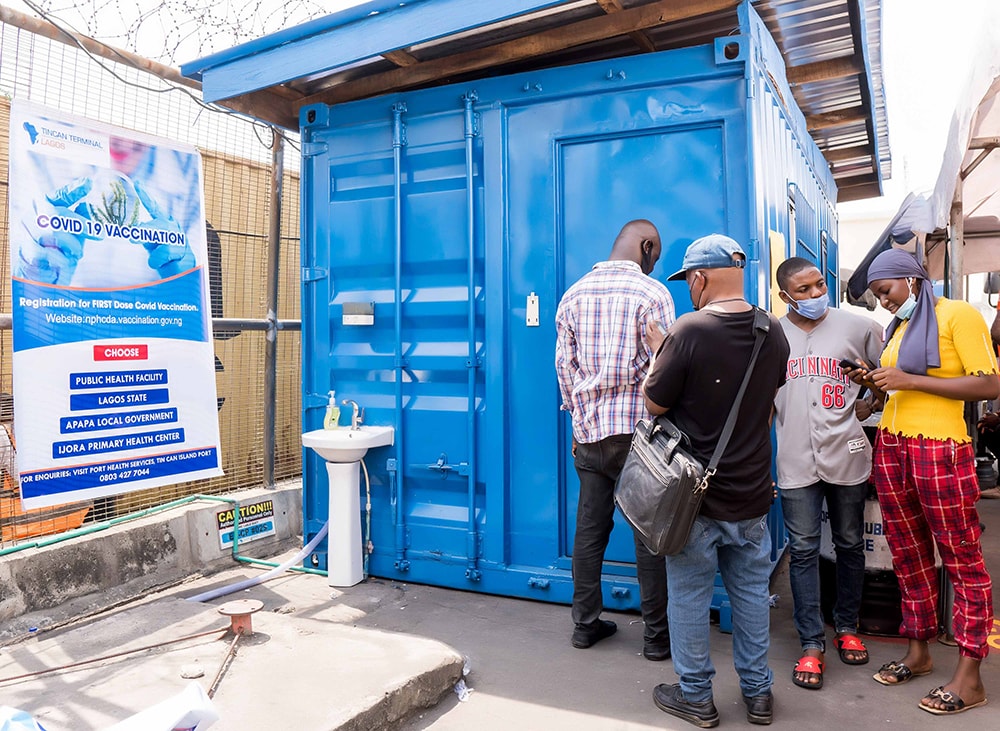
CDC supported community vaccination sites, like the one at Tin Can Island Sea Port. Visitors, workers, and all eligible people were able to get free COVID-19 vaccines.
Photo credit: Godwin Oisi/CDC
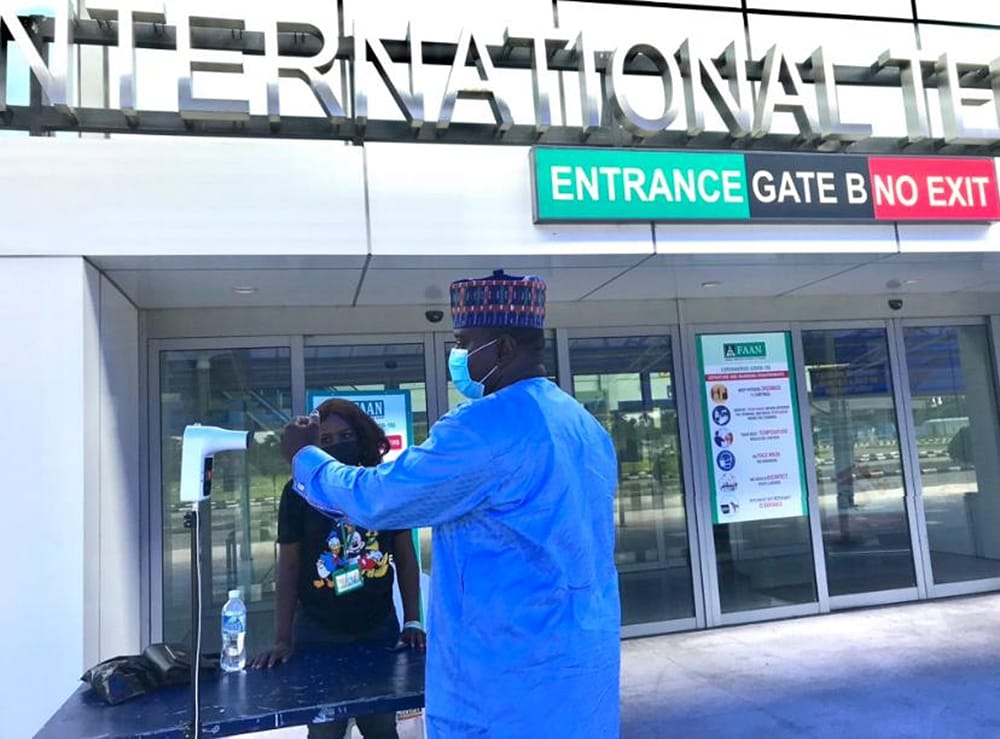
Through strong collaboration among partners, CDC, and Nigeria’s government secured points of entry during periods of rapid spread of COVID-19. Lessons learned in border health surveillance during the COVID-19 pandemic will be used during future disease outbreaks.
Photo credit: Olaoluwa Akinloluwa/CDC